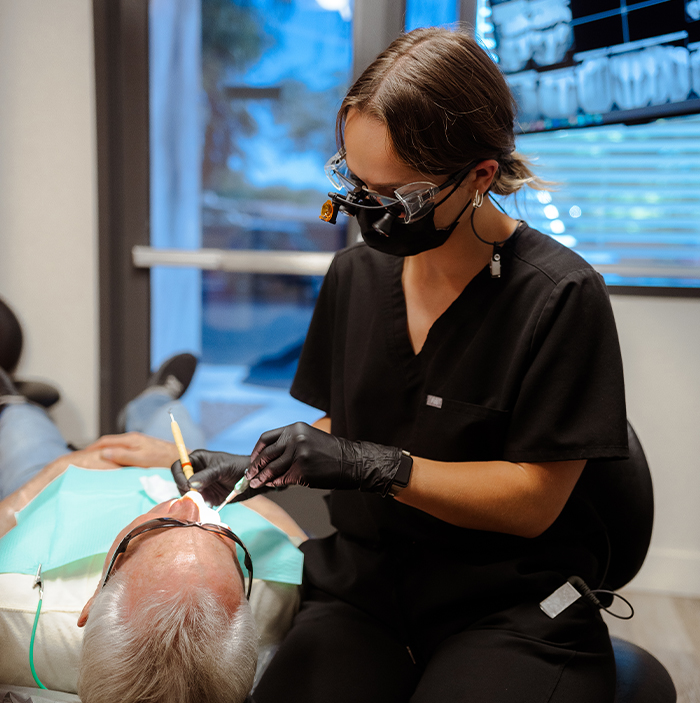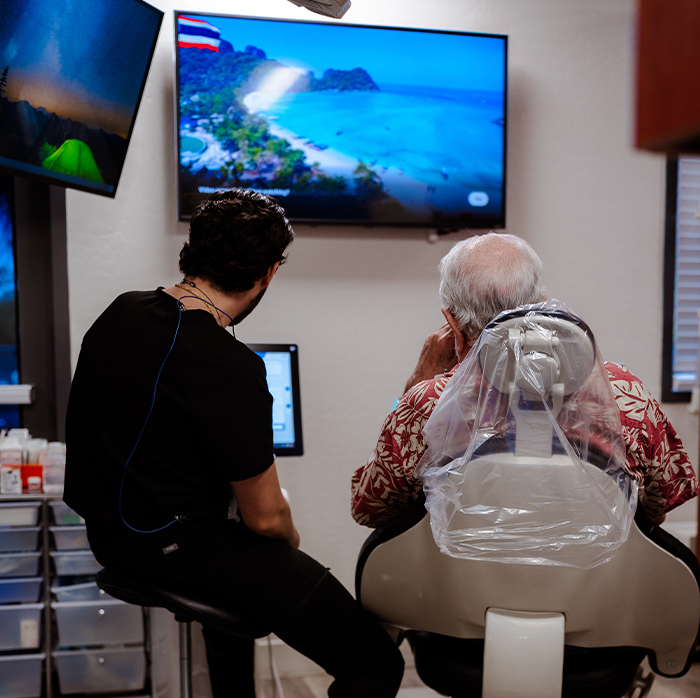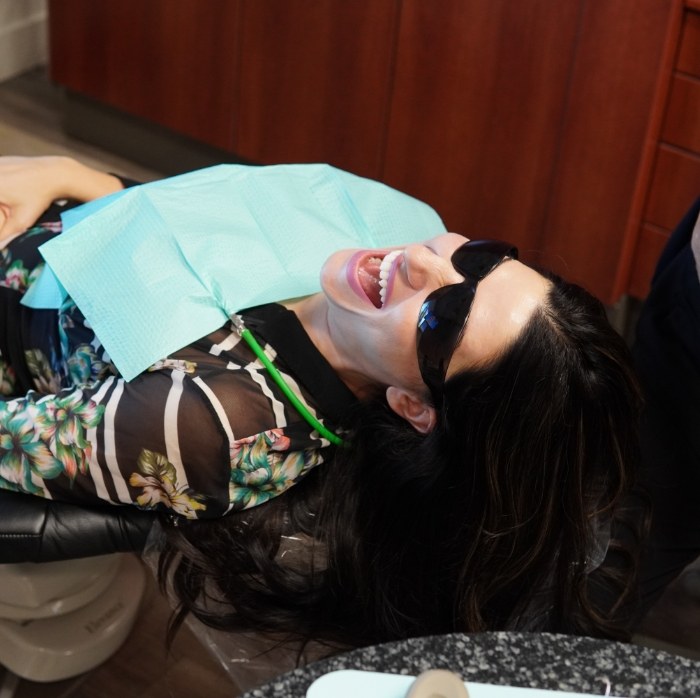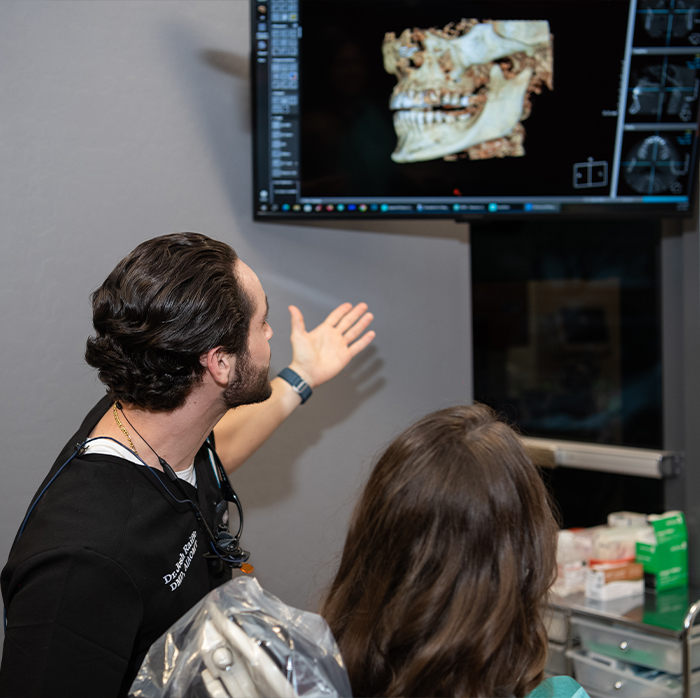Emergency Dentist – Scottsdale, AZ
Immediate Dental Care with Long-Term Results

At our office, our team of experienced dentists understands that when dental emergencies happen, time is of the essence. This is why we offer same-day appointments so that you get the immediate dental care you need with the long-term results you deserve. From knocked-out teeth to lost dental crowns, our emergency dentists are equipped with the latest technology to deliver timely treatment you can count on. To learn more about our process, call our dental office today.
Why Choose Shea Dental of Scottsdale for Emergency Dentistry?
- Same-Day Emergency Dental Appointments Available
- Sedation Dentistry Used If Necessary
- Serving Local Residents for 30+ Years
How We Treat Dental Emergencies
Our team is ready to help the moment you call our office. When suffering a dental injury of any kind, we will work quickly to identify a time that you can come in to see Dr. Raiffe or another one of our skilled dentists. After listening to your concerns and evaluating the situation, we’ll provide first-aid tips you can use at home to minimize pain and protect your damaged smile until you reach our office.
When you arrive, you’ll be escorted to an operatory, where we will take digital images of your smile and perform a thorough examination to pinpoint the problem area. After reviewing our findings, we’ll begin to craft a treatment plan that incorporates how we expect to address the issue most comfortably and conveniently.
We’ll then begin to administer treatment so that you are no longer in pain and can walk out of our office with a healthier, damage-free smile.
The Most Common Dental Emergencies
There are countless types of dental emergencies that you can sustain; however, you may be unaware if what you’re experiencing is worthy of a visit to your dentist’s office. Our team wants you to have peace of mind, which is why you will find a list of common dental injuries that we treat below. From learning how to care for the problem at home to how we will address it in our office, feel free to review the provided information and give us a call with any questions.
Understanding the Cost of Dental Emergencies

Many patients who suffer dental emergencies often wonder if it’s worth visiting a dentist for help. They may be afraid of the potential cost of such treatment. What our team wants you to know is that it is always better to seek professional help than to forgo care and allow the problem to worsen. The cost of dental emergencies is never the same, so it is only once we can evaluate the issue that we will be able to provide a more thorough estimate for you to review.
Keys to Preventing Dental Emergencies

Accidental impact with a ball or another person while playing sports is hard to prevent; however, cavities, gum disease, and infection are all dental problems that can be avoided. If you want to minimize your chances of spending time in the dentist’s chair for a dental emergency, consider these tips to lower your risk:
- Practice good oral hygiene at home. This includes brushing your teeth twice each day, flossing at least once, and rinsing with an antimicrobial mouthwash.
- Wear a customized mouthguard to reduce the risk of injury to your teeth and gums. One can be created for you if you are engaged in sports and/or if you grind your teeth while you sleep.
- Eat healthy foods that are full of vital nutrients. A diet full of leafy greens, lean proteins, low-fat dairy, and plenty of fruits and vegetables will prove beneficial not only for your smile but also for your body.
- Give up unhealthy habits like smoking and excessive alcohol consumption. Also, do not bite your fingernails or eat ice, as these, too, can damage your teeth.
- Keep your six-month dental checkups and teeth cleanings with your dentist to ensure that your smile is properly cared for throughout the year and that no additional issues are forming that could hinder your overall well-being.
Same-Day Emergency Dental Care Available

At our office, we understand that dental emergencies never strike at a convenient time. Our team strives to be available when patients need us most, which is why we offer same-day emergency care so that dental pain can be relieved as quickly as possible. Please contact us if you’re in need of an emergency dentist.
 (480) 998-3923
(480) 998-3923